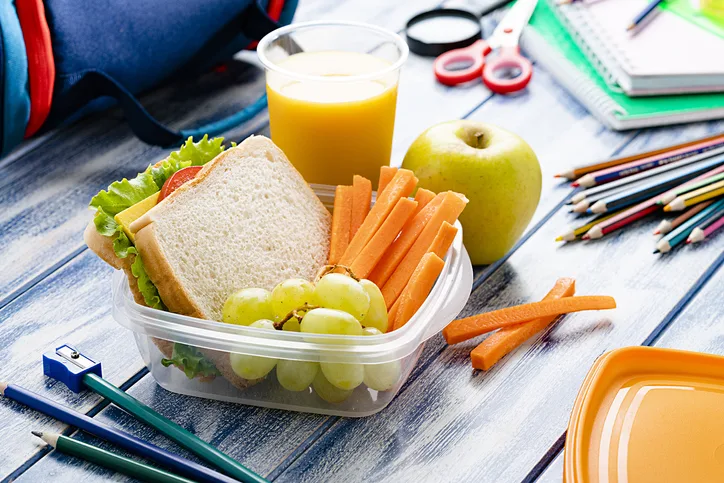Originally, most people were farmers. We are increasingly seated. Our sedentary lifestyles are aided by labor-saving electronic devices and cars. Add to it the wide variety of food alternatives available in and around offices, and you have a formula for ill health.

In addition to affecting our health, an inadequate diet can create anger, frustration, and impatience at work. The typical worker gained one productive day per month by participating in a wellness program that included nutritional initiatives, according to one study.
We all know we should ‘eat a healthy diet and exercise regularly, but with nine-hour days, no lunch breaks, a two-hour journey, and home life to squeeze into 16 hours, it’s easier said than done.
Learn About What Is Good For You
The first and most crucial step is to educate yourself on the nutritional content and impact of foods and beverages. Nutrition is more than good vs bad, as most of us know. Some meals, including sushi and granola bars, have more sugar than others.
By understanding, you may make basic dietary modifications for greater health and work performance. The brain-boosting ingredient choline and protein found in eggs for breakfast make it a healthier breakfast option than jam on toast. This spicy tuna roll recipe makes an excellent brain food for lunch.
Creating A Routine
Because we don’t plan and develop healthy routines, we fall into poor habits (and this usually means unhealthy). Building a habit prepares you for better meals and choices, such as homemade dinners or avoiding dessert. And, most crucially, you’re eating before you’re hungry.
Create a simple dish that you can take to work. Buying nutritious snacks (carrot sticks, almonds, and seeds) on your way to and from work will help you avoid buying unhealthy food from vending machines.
One of the best things you can do for your working week is to bulk cook and create grab-and-go lunches. You prepare your week’s lunches on a Sunday then throughout the week the pressure and stress of choosing a healthy lunch are eliminated. You already have a good lunch ready to enjoy.
Eat Regularly
When and how often people eat are just as essential as eating well and receiving the proper nutrients in your diet. Skipping meals or eating unhealthy snacks causes blood glucose levels to plummet, making it difficult to concentrate and more inclined to binge or eat bad things during your next meal.
Skipping meals has several drawbacks:
- Other times are more inclined to overeat
- You acquire weight more easily
- Mood is harmed
- Low blood sugar and energy impact concentration
Don’t skip breakfast. Doing so increases your chances of weight gain, cholesterol problems, heart disease, high blood pressure, diabetes, obesity, and high cholesterol. Eating your breakfast will help you burn calories during the day and control your morning cortisol (the key ‘stress hormone’). High cortisol levels can make you worried or jittery.
Breakfast Tips:
- Breakfast high in protein keeps you fuller longer and prevents you from snacking
- Avoid sugary foods to avoid a sugar spike all-day
- Prepare breakfasts such as overnight oats the day before
Rehydrate
Workplace dehydration affects productivity, cognitive ability, reaction speeds, and even morale. Dehydration, hyperglycemia, and sleep disruption are all symptoms of dehydration.
Energy drinks have been banned in several workplaces due to their high caffeine level, lack of nutritional value, and negative health impacts.
After-work drinks can help increase morale and team building, but too much alcohol can disrupt sleep and dehydrate you, and no one does their best work while hungover!
Smart Lunch
Choosing a healthy lunch during a hectic day is not only necessary but also difficult.
A balanced meal contains protein, sugars, fat, fiber, carbs, and other nutrients.
A high-carb meal provides you with a surge of energy accompanied by a slump, diminishing your motivation and attention. A high-fat meal provides more continuous energy, but strains our digestive system, lowering brain oxygen levels and making us groggy.
One study found that persons who ate more vegetables and fruit (up to 7 servings) were happier, more involved, and more creative. Since fruits and vegetables have nutrients that promote dopamine production, which contributes to feelings of interest, motivation, and engagement. Antioxidants in them help memory and mood.
Plan and shop for work lunches. For instance, you can buy ingredients for a large salad that includes cucumber, lettuce, cabbage, peppers, and carrots.
Hopefully, these tips will help you to plan for a healthier lunch at work. Do you have any other tips that could help others to do the same? Please share some of them in the comments below.

Jessi is the creative mind behind The Coffee Mom, a popular blog that combines parenting advice, travel tips, and a love for all things Disney. As a trusted Disney influencer and passionate storyteller, Jessi’s authentic insights and relatable content resonate with readers worldwide.
